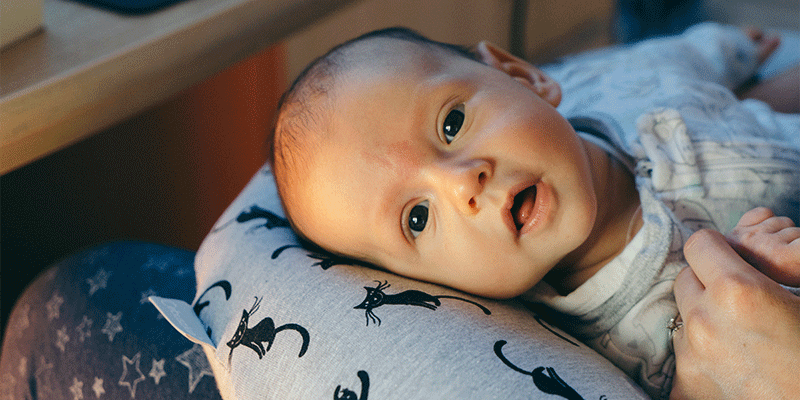
When milestones are delayed
If your child’s development seems delayed or shows any of the behaviors in the following list, tell your child’s doctor. Sometimes language delays occur along with these behaviors. Also, tell your child’s doctor if your baby stops talking or doing things that he or she used to do.
- Doesn’t cuddle like other babies
- Doesn’t return a happy smile back to you
- Doesn’t seem to notice if you are in the room
- Doesn’t seem to notice certain noises (for example, seems to hear a car horn or a cat’s meow but not when you call his or her name)
- Acts as if he or she is in his or her own world
- Prefers to play alone; seems to “tune others out”
- Doesn’t seem interested in or play with toys but likes to play with objects in the house
- Has intense interest in objects young children are not usually interested in (for example, would rather carry around a flashlight or ballpoint pen than a stuffed animal or favorite blanket)
- Can say the ABCs, numbers, or words to TV jingles but can’t use words to ask for things he or she wants
- Doesn’t seem to be afraid of anything
- Doesn’t seem to feel pain in a typical fashion
- Uses words or phrases that are unusual for the situation or repeats scripts from TV
Delays in language
Delays in language are the most common types of developmental delay. One out of 5 children will learn to talk or use words later than other children their age. Some children will also show behavioral problems because they are frustrated when they can’t express what they need or want.
Simple speech delays are sometimes temporary. They may resolve on their own or with a little extra help from family. It’s important to encourage your child to “talk” to you with gestures or sounds and for you to spend lots of time playing with, reading to, and talking with your infant or toddler. In some cases, your child will need more help from a trained professional, a speech and language therapist, to learn to communicate.
Sometimes delays may be a warning sign of a more serious problem that could include hearing loss, developmental delay in other areas, or even an autism spectrum disorder (ASD). Language delays in early childhood also could be a sign of a learning problem that may not be diagnosed until the school years. It’s important to have your child evaluated if you are concerned about your child’s language development.
Last Updated 8/24/2020
Source Is Your Toddler Communicating With You? (Copyright © 2011 American Academy of Pediatrics)
The information contained on this Web site should not be used as a substitute for the medical care and advice of your pediatrician. There may be variations in treatment that your pediatrician may recommend based on individual facts and circumstances.






